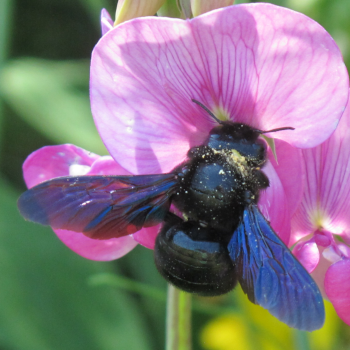Philipp Uhl explains the newest technical report “Protection of wild pollinators in the pesticide risk assessment and management” to address these questions, published by the German Environment Agency.
There is an ongoing insect decline in Europe and flower-visiting insects (FVIs) are among the severely affected groups. This decrease in species and their abundances is caused by several mostly anthropogenic factors, one of which is pesticide exposure. Pesticides are applied in crops to reduce pest pressure but non-target species are also unintentionally exposed. In Europe, there is a risk assessment in place to make sure that pesticide applications have no unacceptable effects on non-target species, ecosystems and biodiversity. FVI decline suggests that the current regulatory measures may not provide sufficient protection.

The R+D project “Protection of wild pollinators in the pesticide risk assessment and management” (FKZ 3715 64 409 0) addressed this research question. The final report was published by the German Environment Agency (UBA) and is available free of charge (access at the UBA website).
The scientific literature and regulatory documents were screened to summarize the available knowledge, identify open research questions, and propose improvement to the current risk assessment and management. In a first step, ecology of FVIs was reviewed and their habitat was determined. This enabled an assessment of exposure pathways and a quantitative evaluation of pesticide residues in FVI habitat matrices.
Afterwards, scientific evidence of pesticide effects on FVI species at environmentally realistic levels was compiled. This combined information was used to critically discuss the current risk assessment process and to identify decifits regarding FVIs. Data-driven tools were suggested that utilize ecological properties of FVI species to improve the regulatory assessment.
Furthermore, an updated European FVI risk assessment and management framework was proposed. Finally, knowledge gaps were identified that need to be addressed to better understand the pesticide impact on FVIs and develop a more protective risk assessment.
The technical report was authored by Renja Bereswill, Kevin Krichbaum, Michael Meller, Kristina Schmidt, Carsten Brühl, Philipp Uhl and Christopher John Topping and published by the German Environment Agency (official press release in German).
